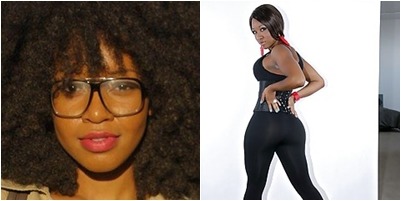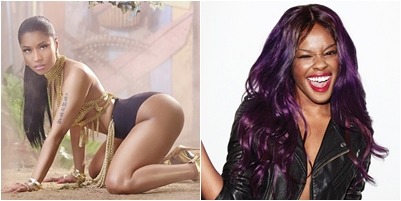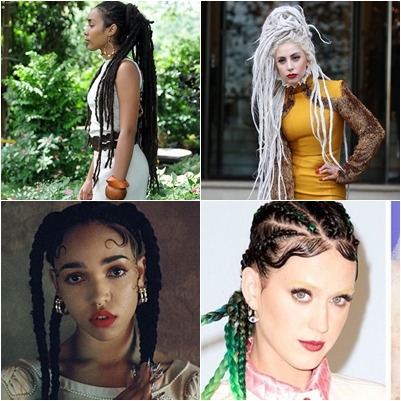I’ve been having a hard day.
I can hardly process menial shit.
But this mugshot…. Y’all this place is hell. Amerikkka is a hell. This world is a hell.
racism
what white people think racism is: when you mean to someone because of their race
what racism really is: social and legal systems that puts a race beneath another, vilifying them, fetishizing them, sexualizing them, and creates a usually negative bias towards that group.
where childhood is not an option when you’re the villain or where you are always seen at a child’s level no matter your age
where you are always responsible if someone else says/does something racist towards you, because existing invites aggression somehow
where you do not fit beauty standards, because beauty is afforded to the human, and your conditioned low self-esteem lets you know that
where you’re either synonymous with violence, stupidity, or infantilization, because you cannot make your own choices that aren’t irrational.
where your feelings are routinely invalidated and your daily life experiences are not enough evidence and cannot be trusted, because you’re a suspicious character whose humanity is always on trial. so you do not get to define universally what racism is
where you do not get feel anything besides rational at all times, to be carefree or upset or angry without it being a stereotype of you overreacting to everything
where if you fit into a stereotype it could mean your death and the rest of your race tries to put you down as a self-elevating technique, because they have internalized the lie that when you deny your race and culture you become human. where fitting a stereotype means “see i knew they where all like this”
where if you don’t fit into a stereotype you are not your race and culture, because people have such narrow views of what you’re supposed to be that you cannot possibly exist and be your race at the same time, so people of every race take away yours. Oreo. Banana. Coconut. Apple.
where you will legally get more time for the same crimes
where you will socially be demonized more for the same crimes
where when you quell the crimes keeping your race down, there are always more that’s made up to keep you in your place (The War on Drugs =_=)
where you get paid less for the same work
where you get hired less with the same qualifications
where having a culturally-coded name that’s not acceptable, like Ibrahim, Jose, or Unique can stop you from getting a job
where there are so many things in place to keep you impoverished and uneducated but it’s still your fault if you don’t have the strength and good luck to defy the lack of social mobility and create your own
where entire countries whose cultures and economies have been destroyed are trying to restart alone and the people that destroyed them blame the country for its own destruction
where the farther your features are from your race the more beautiful you’re considered
where your rank in social hierarchy changes how people treat you the more they find out about your identity, and the more marginalized you are by coming out of the closet or not being christian or not being able-bodied and neurotypical the worse you get racism, because you are a bigger target for various acts of violence and microaggressions
where you get used to microagressions before you hit double digits
where your most recent experience with a microaggression was probably yesterday if the day just started
where you idea of a microaggression is the white summation of racism
where your family teaches you how to assimilate to white culture to try and protect you from all of the above
where your death is an opportunity to blame you for it and demonize you in your grave
where there is a death count just for existing
where there is a death count just for existing
where there is a death count just for existing
This.
being called “racist” isn’t simply an insult or something mean that people are saying to you because they want to bring you down. if you’re being called racist you shouldn’t be brushing it off because you “can’t see the haters” you should be assessing your behaviour, your language, and mindset for signs of prejudice, discrimination, and sympathy/support for unfair and violent treatment towards racially persecuted people in your country
Run time: 7 seconds
This one is my favorite of these. But they’re all equally poignant.
white queers and white leftists look at black people w a paternalistic and parental attitude like they feel like we’re too primitive or politically underdeveloped to be “radicals” and whatnot and that’s why iont rep them and their spaces even tho i can and do wipe the floor w them and am juss as adept at reading engels and butler and all the rest of the geeks they think we too incompetent to understand !
I feel this about even non-black people of color who run in the same circles
10 Simple Ways White People Can Step Up to Fight Everyday Racism
Link10 Simple Ways White People Can Step Up to Fight Everyday Racism
By Derrick Clifton | September 4, 2014 | Mic.com
Let’s face it: Most white people don’t like being accused of racism or hearing that they have white privilege.
For many whites, these types of accusations have nasty connotations, hearkening back to slavery, colonialism, rape, genocide, segregation and disenfranchisement. But although it may be uncomfortable, these connotations can’t be swept under the rug. Learning about the history of racial oppression in America is an important step toward understanding why many people of color have a hard time trusting white people.
For multiple generations, people of color have had negative experiences encountering institutional racism and microaggressions, so it is no surprise that they may prefer not to deal with whites altogether.
This isn’t to say that all white people are racists, or even that all white people have direct culpability in creating or sustaining racism in America. Indeed, being pushed away by people of color or being called-out on racism — directly or indirectly — may instead inspire feelings of resignation or hurt. And some whites truly wish to help as best as they can while cultivating strong relationships with people of color.
Unfortunately, there isn’t extensive education in American classrooms that examines racism throughout history. As a result, there are not nearly enough opportunities for whites to learn how they can bridge gaps of misunderstanding, distrust and guilt towards achieving true equity and inclusion for people of color. For too long, whites have only heard about racism in the context of what not to do, but rarely, if ever, do white people hear about how they can be proactive about the issue.
By taking the leadership of people of color in the broader conversation about eradicating racism, whites can take steady, even simple steps towards becoming allies in the fight against racial inequality, not merely bystanders — or worse, perpetrators:
1. Listen when people of color talk about everyday racism and white privilege.
When a white person speaks up about racism, other whites tend to listen carefully and respectfully, even if they disagree. But more often than not, when blacks and people of color speak about racism, the instinct is to jump to conclusions, to interrupt, call them liars, question their intelligence or walk away from the conversation altogether.
Ending such a dialogue because one might feel uncomfortable does little to push the conversation forward, and reinforces white privilege. People of color live with the burden of institutional racism, but there are little-to-no consequences for whites who choose to ignore a historically violent and oppressive system from which they benefit every day.
Instead, a more productive solution comes through listening carefully and reserving judgment when people of color openly discuss the pain they have endured.
2. Honor the feelings of people of color in the discussion. It is not about your white guilt.
If white people are tired of hearing people of color “whine” or “rant” about white privilege, then imagine how exhausting and burdensome it is to directly contend with racism every day for years.
The last thing people of color need to hear from white people is how they should deal with or talk about encountering racism. Even with the most well-intentioned effort, white people must acknowledge they will never have the same understanding or range of experiences that people of color bring to the conversation. This is not to say that white people can’t join the discussion, but that they must focus on a solution.
Too often, white people overreact to criticism, become defensive and turn their feeling of uncomfortableness back on their peers. People of color have long been policed for their “tone” or “overemotional attitude,” feelings that are human and valid after dealing with something as infuriating as racism.
3. Ask plenty of questions. Earnestly seek to understand people of color before trying to have your viewpoint understood.
During a heart-to-heart about racism, don’t assume that everything being said immediately makes sense. The best way to seek clarity and bridge any gaps of knowledge is to simply ask for more information, just as you would for any other topic that isn’t your area of expertise.
It’s OK to admit that you don’t know how it feels to be racially profiled by cops, surrounded by advertisements that reinforce Eurocentric beauty standards or be presumed unintelligent or inferior until proven otherwise — all because of the color of your skin. By being inquisitive, you’re more likely to reach a place of understanding and empathy. Once this connection is established, you have a stronger foundation to share your own personal experiences.
4. Educate yourself about racism as much as possible before asking people of color for help.
It’s important to listen and defer to people of color during discussions about racism, but remember that they, too, are humans with limits on their time, resources, attention spans and emotional reserves. Sometimes, they may not have the energy to educate white people about racism because they’ve talked about it so much already. It may also trigger pain, resentment and sadness from dealing with oppression.
So if a person of color backs away from the conversation and asks for space, respect that. There is no lack of information on the topic. Take responsibility and educate yourself, using the many books, recorded speeches, poems, news articles, research studies and other sources of information publicly available.
5. Challenge other white people in your life to think critically about racism — family, friends, coworkers, teachers and even public officials.
If you see or hear something, say something. Don’t ignore discussions of racism when they emerge in the news cycle or sit by idly while someone perpetuates racial stereotypes or blatant disrespect — even if that disrespect is coming from a close friend, family member or superior. Encourage white people in your life to engage in the same kind of critical thinking that you yourself are engaging in.
6. Direct peers towards the perspectives of people of color. Becoming a “savior” is not cool.
It’s crucial not to hog all of the air in the conversation, or act as the spokesperson for people of color — because white people can’t truly present the perspectives of people of color. In addition, white perspectives and voices have historically been given priority over the lived experiences and knowledge produced by people of color.
Instead, actively affirm the leadership of people of color in the conversation. Consider limiting the amount of personal perspective you offer and refer other white people to the same sources of enlightenment and insight that helped you best understand how to put anti-racism into practice.
7. Avoid conflating other oppressions with racism unless it’s directly relevant to the conversation.
In an often well-intentioned, yet half-hearted way of empathizing or identifying with someone else’s struggle with racism, it’s easy to say “I know what that’s like” because I’m gay, or a woman, or poor, or disabled or a religious minority. These other identities may intersect with racial inequality, but are not about race. Yes, experiencing another form of oppression should help you empathize, but that doesn’t mean that you’ll ever really know what racism feels like.
Instead, it can come off as insulting, or make it seem like you’d rather shift the discussion toward a subject you feel more comfortable talking about. Even worse, this type of conversational pivot can imply that your differing oppression takes priority, something that strains the potential bond that could be formed in the conversation.
8. If you make a mistake, ask people of color how you can fix it.
It’s good to admit you’ve done wrong and own up to your mistakes — it’s a much more positive and effective reaction to backlash than dismissing racism critiques or denying there’s a problem. As with any other situation that reveals a personal fault line, ask how you can behave better in the future and show that you genuinely care about ensuring that people of color are truly welcomed, affirmed and respected.
Keep in mind that as a person who has power and privilege in the situation, you have a responsibility to ensure others aren’t being continually impacted by oppression, especially if it comes from you.
9. Adopt intersectionality as an approach to all aspects of everyday life and start taking it seriously.
Intersectionality is much more than just an abstract academic theory developed by feminist scholars like Kimberlé Crenshaw and writers and advocates of color. Indeed, it’s a liberating way of living, working and even connecting with other people.
Intersectionality matters because it acknowledges that there are multiple perspectives that need to be honored and understood on any given issue — big or small — because each individual experiences a variety of privileges and limitations based on their identities. For example, a person can experience prejudice because they aren’t heterosexual and because they aren’t wealthy, but still can exercise their racial privilege as a white person. All of those identities coexist.
For the individual above, the experience of being white, gay and poor will differ from someone who shares the same set of identities, but is instead a person of color. Intersectionality teaches us that race impacts the amount of difficulty or relative ease two individuals of different racial backgrounds will experience, while navigating an otherwise similar set of institutional challenges.
10. Openly call out and reject any and all white privilege you witness or experience.
Yes, this means giving up your privilege in order to level the playing field.
This could mean speaking up when a cab zooms past a black woman and picks up you and your white friends instead, a phenomenon known as destination discrimination. Or it could mean objecting when asked to speak about racism in lieu of a person of color who is more qualified, or after witnessing a person of color receive harsher punishment for something that earned you a mere slap on the wrist.
Reject and name that privilege — because you didn’t earn it and it’s not one you chose. Recognize it for what it truly is: a perpetuation of some of the worst, lingering elements of racism and white supremacy.
To the many white people who have asked us what they can do to stand up against everyday racism – here…start with these 10 things.
THIS IS EVERYTHING.
The fact that so many people are losing followers because of the blackout is just hilarious to me. If you find it annoying or alienating to be inundated with images that you don’t identify with (you’re white but everything around you right now is black), take a moment to consider why you feel that way…maybe a lack of representation and the fact that you’re unable to fully emotionally benefit from the event makes you feel a little less important than normal? Why is being inundated with images of beautiful white people every day acceptable, but the blackout causes you to unfollow? The blackout posts I’ve seen have been 100% positive, why reject that?
This is a role reversal experiment, and I love it. What if the blackout was all-encompassing and never ended…white people would have to carve out their own niches online and in the media to find images and information that was relevant and representative of themselves. Because that’s literally what poc do every day. At least in America and mainstream media. If nothing else, the blackout should open your eyes to that. If you can’t handle it?? I have no advice for you.
I’m interested in having people of color at the center of their own lives. We don’t need to be saved by anyone. We do not need to have anyone sweeping in on a white horse or someone saving the day or assisting us in our own narrative.
Ava DuVerney (on not being interested in making a “white savior” film)
White saviors, read this.
We don’t need you.
We aren’t props for your image.
We see right through you.
(via thisiseverydayracism)
White girls calling black women’s features ugly,
But they doing this,
They call black female rappers trashy,
But they call white rappers fearless, strong women, original,
They insult black culture but use it for their benefit and to make a statement,
Never going to stop re logging
dark girls are so beautiful and it sucks bcs we literally have to try so much harder than everyone else to get a minuscule of the love and adoration we deserve. it’s like we will never ever been seen as inherently feminine and beautiful and this is something that is pissing me off more and more these days








